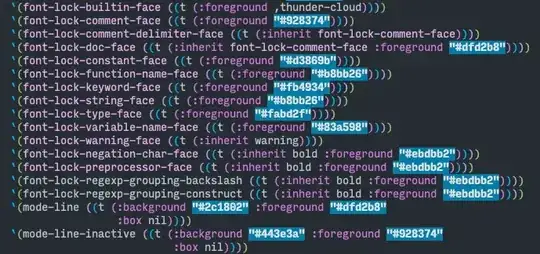C-u M-x occur \"\(#[^\"]+\)\" <RETURN> \1
(this strips the quotes)
or
C-u M-x occur "#.+\" <RETURN>
(this keeps the quotes)
occur finds all lines that match the provided regexp. Calling it with the prefix argument (C-u) returns only the matched text, not the complete lines. Using the capture group (\(...\)) lets you select the group, while ignoring the enclosing quotes. If you don't care about including the quotes, you can drop the capture group.
For example:
(let (
(base00 "#081724")
(base01 "#033340")
(base02 "#1d5483")
(base03 "#2872b2")
(base04 "#d3f9ee")
(base05 "#a6f3dd")
(base06 "#effffe")
(base07 "#fffed9")
(red "#ff694d")
(orange "#f5b55f")
(yellow "#fffe4e")
(magenta "#afc0fd")
(violet "#96a5d9")
(blue "#bad6e2")
(cyan "#d2f1ff")
(green "#68f6cb")
(twsblue "#0000ff"))
Calling occur as above produces:
#081724
#033340
#1d5483
#2872b2
#d3f9ee
#a6f3dd
#effffe
#fffed9
#ff694d
#f5b55f
#fffe4e
#afc0fd
#96a5d9
#bad6e2
#d2f1ff
#68f6cb
#0000ff
#002b36
